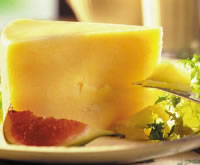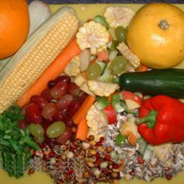
African Grey Parrots like humans need a good healthy diet if they are to live to their potential lifespan of up to 70
years, you are what you eat as they say!!
So we thought we’d put together a list of five super foods that it is essential that you parrot gets in it’s diet if you are to achieve optimum health status from a diet aspect, there’s other factors involved in lifespan but lets not look at those in this article, we don’t want to complicate things too much.
So lets take a look at those super foods in a little more detail:
1. Super Foods For Your Parrot: Pulses
Pulse are often greeted eagerly by African Grey Parrots. These should be cooked. Homemade mixtures would consist of several varieties of legumes along with rice and grains. The mixture should be soaked for at least 6 hours, then boiled for 10 minutes, and simmered for 20 more minutes and cooled before serving.
Legumes, grains and potatoes are cooked to neutralize enzymes that inhibit digestion and also to neutralize toxins. You can find many of these bean and grain mixtures available premixed, look for the low fat ones.
If you cook your own bean and grain mixture, using equal amounts of each, your mixture will contain approximately 2% fat and 10% protein.
Pulses should include:
Pinto beans, black-eyed peas, adzuki, green and yellow split peas, garbanzo, black beans and lentils.
2. Super Foods For Your Parrot: Fruit
It’s worth remembering that most of our fruits are bred for appearance and sweetness now-a-days (sadly). This is often to the detriment of vitamins and minerals as well as fibers and I therefore favour feeding vegetables. Still, a parrot’s diet should not be without fruit. Tropical fruits are best – Try and get organic if you can.
Good fruits to feed are:
Apples, oranges, pears, apricots and peaches (stone removed), pineapple, passion fruit, bananas, mangos, melon, cantaloupe, papaya, coconut, plums, cherries, strawberries, blueberries, cranberries and blackberries are good for your parrot.
Pomegranate is a great favourite when in season.
3. Super Foods For Your Parrot: Vegetables
Other than avocado you can feed your pet parrot pretty much any vegetable that you can think of. Try feeding the nutritional things such as greens, tomatoes and peppers. Salt is a killer for parrots so stay clear of things such as olives (usually preserved in salt). Although garlic and onions are full of goodness they are really rather aggressive on the tummy so that’s another “no-no”.
Apart from providing some fibre and carbohydrates, fruits and vegetables provide much needed vitamins and also minerals.
Parrots are much more reliant on vitamin A to maintain a healthy immune system than they are on vitamin C.
In vitamin supplements vitamin A is present in a complete form. This means that if too much vitamin supplement is added to a bird’s diet it is possible to overdose vitamin A. On the other hand, this is not possible when fresh fruit and vegetables are fed. Beta-carotene is a precursor to vitamin A and is changed inside the body into the essential vitamin A. As soon as the bird’s system has ‘produced’ enough vitamin A it will simple discard any excess beta carotene without any harmful effect.
Fruits and vegetables high in beta-carotene are:
Carrots, sweet potatoes, apricots, winter squash, pumpkin, cantaloupe and mangoes. Dark green leafy vegetables such as kale, collard greens, spinach, Swiss chard and broccoli.
Other good vegetables to feed are:
Beans, cabbage, sprouts, broccoli, tomatoes, sweet corn, green peas, cauliflower, red and green peppers, celery, zucchini, tomatoes, cucumber and cooked white potato
Greens: dark leaf lettuces, dandelion greens, collard greens, mustard greens, kale, beet greens
4. Super Foods For Your Parrot: Seed
Although seeds are a source of nutrition, some can be high in fat.
Here is a table showing averaged fat percentages of some common seeds.
| |
Fat |
Protein |
Carbohydrate |
| Canary Seed |
5.6 |
15.6 |
65.6 |
| White Millet |
4.1 |
14.3 |
67.5 |
| Groats |
6.6 |
14.3 |
67.5 |
| Sunflower (Stripped) |
33.9 |
21.7 |
41.5 |
| Sunflower (White) |
47.0 |
24.0 |
20.2 |
| Sunflower (Black) |
49.0 |
24.0 |
20.2 |
| Safflower |
34.6 |
15.2 |
43.2 |
| Pumpkin |
42 |
32 |
|
Sprouted seeds:
Seeds can be an important part of the diet, but must be from a clean source and be fresh. Seeds can provide vitamins such as niacin, riboflavin as well as essential amino acids and minerals.
When you sprout a seed, it comes to life, changing its entire chemical composition. The fatty oils found in the seeds are converted to essential fatty acids.
Sprouts are an ideal source of protein that can also help the body to cleanse itself. Besides providing protein, sprouts are rich in almost every nutrient, vitamins (especially vitamin A, B vitamins, C, D and E), enzymes, essential fatty acids and minerals (including iron, potassium, magnesium, phosphorus, calcium, zinc and chromium) all of which are natural antioxidants that strengthen the immune system and protect against toxic chemical build-up. The few calories that are found in sprouts come from simple sugars, which make them a quick source of energy.
5. Super Foods For Your Parrot: Cheese
Cheese I hear you say? … yes cheese, it’s really important that your African Grey gets a good dose of calcium to help keep it’s bones nice and strong just like a human, a REALLY good source of clacium is dairy products … now you could try and give you parrot a pint off milk but I doubt it would 1. drink it and 2. drink enough of it if it did, the other solution
is to add Calcivet which is a powdered form of calcium to it’s food (Ideally the fruit & Veg), there’s two problems with that, 1. it’s an expensive way of doing things and 2. it’s not really for every day use with your pets because it’s pure calcium and can have the adverse effect of too much calcium (It’s used for breeding parrots that need more calcium for the egg laying process).
So the best and most ideal way to get calcium into your pet African Grey is to give it a block of hard cheese i give cheddar (Not soft cheese) once or twice a week, about an inch square should do the trick, the best part is that African Greys LOVE cheese with a passion so it’s the ideal way to get the calcium into it!!
About the Author
Written by Paula Dansie of the African Grey Parrot Centre ™
This article may be duplicated in its full state but the above link must be retained, if this article is found duplicated anywhere on the web without the link preserved then legal action will be taken and your ISP will be contacted.
More Parrot Food Related Sites



